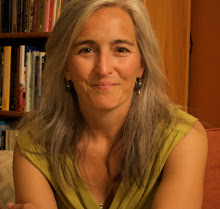(In the form of a letter to my middle child, this is the final portion of a three part blog started on April 28, 2010 about expression of self and that which feeds our souls. The links will take you to some of my favorite pieces of poetry written by the highlighted poet. May you be "found" by something extraordinary in this offering. ~ mlp)
So, for years I’ve been telling you that one of the truly unique aspects of you playing the violin well -- will be that your violin will always be a friend to you. You can play it in joy; you can play it in sorrow. Through your fingers and abilities, your instrument may be an extension of your heart; it could be your only solace at times when lonely - and it might express love at times when words fail you. That’s been poetry for me, Sarah, both in the reading and the writing of it.
There’s been Rumi, Kabir and Whyte for honest prayer; Piercy, Hirschfield and Stafford for grounded awakening; Collins, Rilke, Merwin and Whitman for learning and reflection; Neruda and Kinnell for toe-curling passion, and my beloved Oliver for purpose, joy and deep humility.
There have been moments in my life when words failed me - whether in celebration, despair or even complete and utter boredom with living itself - and I felt momentarily lost...until the arrival of a poem: my life’s version of a well-played violin.
Last fall when your brother was diagnosed with cancer, poetry from unexpected places and unknown poets arrived for me like small life rings from the universe. It was as if, in the absence of an answer to my pleading “why?” - God tossed out vessels of comfort -- in a form that would reach my heart -- to say, “There is no answer that will suffice, but let these words of reflection remind you that all will be well.”
"September Meditation" by Burton D. Carley
I do not know if the seasons remember their history or if the days and
nights by which we count time remember their own passing.
I do not know if the oak tree remembers its planting or if the pine
remembers its slow climb toward sun and stars.
I do not know if the squirrel remembers last fall's gathering or if the
bluejay remembers the meaning of snow.
I do not know if the air remembers September
or if the night remembers the moon.
I do not know if the earth remembers the flowers from last spring or if
the evergreen remembers that it shall stay so.
Perhaps that is the reason for our births -- to be the memory for creation.
Perhaps salvation is something very different than anyone ever expected.
Perhaps this will be the only question we will have to answer:
"What can you tell me about September?"
Praying
It doesn't have to be
the blue iris, it could be
weeds in a vacant lot, or a few
small stones; just
pay attention, then patch
a few words together and don't try
to make them elaborate, this isn't
a contest but the doorway
into thanks, and a silence in which
another voice may speak.
~ Mary Oliver ~
It doesn't have to be
the blue iris, it could be
weeds in a vacant lot, or a few
small stones; just
pay attention, then patch
a few words together and don't try
to make them elaborate, this isn't
a contest but the doorway
into thanks, and a silence in which
another voice may speak.
~ Mary Oliver ~
So, Sarah Grace, this whole rambling post started as the result of an argument we had about...a poem. It was or rather, is, a poem written by the other of my all time favorites, e e cummings. I thought I knew which cummings piece was my most beloved. I was certain for over twenty years, that “i carry your heart” was THE one. But then a few months ago quite by accident, I found the very poem that I offered you to take to your English class on Wednesday morning.
You didn't want to.
Thank you for reminding me how much I love this art form and why; thanks too for giving me a chance to recall my dearest friends and their wisdom, and for inspiring me to tell you a story that might come in handy some day. Lastly, my love, thank you for reminding me that it is the poem that finds us, and only when the time is right...
~ I love you, Mom
"let it go"
let it go - the
smashed word broken
open vow or
the oath cracked length
wise - let it go it
was sworn to
go
let them go - the
truthful liars and
the false fair friends
and the boths and
neithers - you must let them go they
were born
to go
let all go - the
big small middling
tall bigger really
the biggest and all
things - let all go
dear
so comes love
~ e. e. cummings ~




























